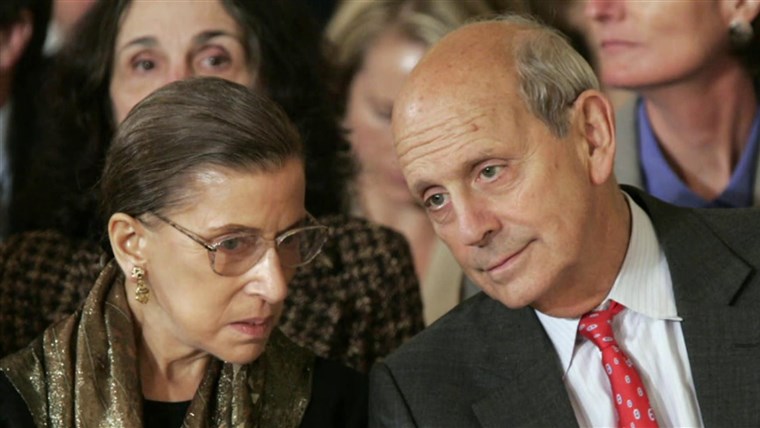Non-partisan institution continues to vote along strictly partisan lines in any case that counts

It looks like Stephen Breyer is going to stick around for a lot more of this:
On Thursday, the Supreme Court released its opinion in Brnovich v. DNC, effectively dismantling what remains of the Voting Rights Act. The 6–3 ruling marks yet another blow to equal suffrage, and is the latest in a long line of decisions greenlighting voter suppression laws. By now, everyone should know that the Supreme Court’s conservative supermajority is hostile to the franchise. But just how bad is Brnovich in the grand scheme of reactionary SCOTUS decisions? To contextualize the ruling, we’ve created a system that ranks Supreme Court opinions against previous rulings across three criteria: radicalness, cruelty, and scope of impact.
Brnovich takes aim at the heart of the VRA as it operates today: The “results test” in Section 2. Like the 15th Amendment, the VRA bans voting restrictions enacted with racist intent—but Congress understood that legislators rarely admit they are trying to stop racial minorities from voting. So, in 1982, it added the results test, which prohibits any law that “results in a denial or abridgment” of the right to vote on account of race. This test clarifies that an election must be “equally open to participation” by all races, and that racial minorities have equal opportunity to participate.
For years, courts have interpreted this test to mean what it says: A law that disproportionately burdens racial minorities’ access to the ballot violates the VRA. For instance, an appeals court struck down a Texas voter ID requirement that made it substantially harder for Black and Latino people to vote under the VRA’s results test. In Brnovich, however, Justice Sam Alito rewrote this test to deprive it of virtually any power. Alito held that voter suppression laws with a disproportionate impact on racial minorities are not inherently unlawful. Rather, as long as minorities have some other opportunity to vote—at least in theory—a law that violates the results test will generally still pass legal muster. Alito further held that courts should assume laws that were common in 1982 are legal today. Most states severely restricted early and absentee voting in 1982, so Brnovich all but guarantees that states can cut back early and absentee voting without fear of the VRA.ADVERTISEMENT
In her dissent, Justice Elena Kagan condemned Alito’s opinion as “a law-free zone.” We think that’s exactly right. The court replaced the actual VRA—a law passed with overwhelming bipartisan support by the democratic branches—with an empty promise. And it did so at a time when, as Kagan put it, “too many states and localities are restricting access to voting in ways that will predictably deprive members of minority groups of equal access to the ballot box.” We therefore rank Brnovich as VERY RADICAL.
Breyer’s apparent decision to hold onto his sinecure for a 28th year, while taking a serious risk that the Democrats lose control of the Senate even prior to next year’s election, illustrates once again that sending a clueless gerontocracy into battle against the crazed hordes of the contemporary Republican party is, um, suboptimal, pragmatically speaking.
In fact at this point I wouldn’t be surprised if Breyer just never resigns, ever, just to show his insolent critics that their failure to perceive the glorious distinction between law and politics has forced him to redeem the majesty of the former by rejecting all considerations associated with the latter.
